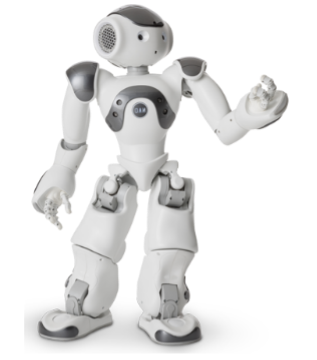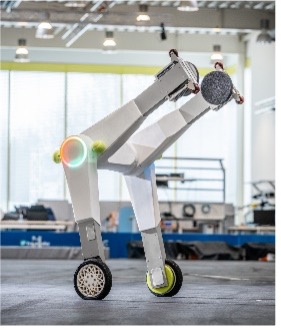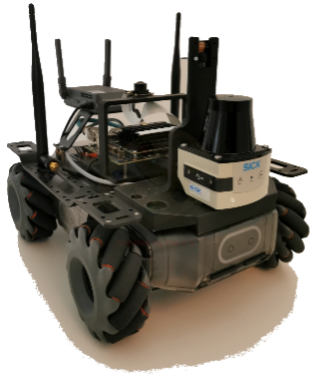AI Junior Research Group

Motivation
Robots are essential already for a long time in the German industry as well as increasingly also in the private sector. In this context, they must be increasingly dynamic and able to move at a speed that does not become dangerous for humans. At the same time, they should still perform their tasks precisely and quickly, for example for transportation in logistics. When moving fast and with a high center of gravity or when transporting high and heavy loads, the physical dynamics of the system play a major role for control engineering. It can be modeled manually, but is mostly highly abstracted from reality, which is known as the sim-to-real gap. Artificial Intelligence (AI) and Machine Learning (ML) approaches can be used to reduce this sim-to-real gap. The robot can learn a suitable model of itself, or it can take over the control entirely through Reinforcement Learning (RL).
Goals and Approach
The goal of this interdisciplinary AI junior research group is to use ML to optimize the dynamic locomotion of real robots of different locomotion modes in order to overcome the sim-to-real gap. Two ML approaches will be investigated, namely hybrid and guided RL. Hybrid learning, on the one hand, is not intended to replace classical methods, but to supplement them with ML in specific areas where they can actually improve performance. Guided RL, on the other hand, enables independent learning of complex control tasks for robots in the real world by integrating existing domain knowledge.
Innovations and Perspectives
Inspired by the research results of dynamics modeling from the field of humanoid robotics, this project will develop and investigate new ML approaches and platforms. By this, current challenges of AI research in robotics will be solved and can be transferred to different application domains of logistics to target practical benefits in various economic applications.
News
Inspired by the research results of dynamics modeling from the field of humanoid robotics, this project will develop and investigate new ML approaches and platforms. By this, current challenges of AI research in robotics will be solved and can be transferred to different application domains of logistics to target practical benefits in various economic applications.Team

|

|

|
|---|---|---|
|
Dr.-Ing. Oliver Urbann |
Julian Eßer |
Nicolas Bach |
News
Sim‑to‑Real Transfer for Humanoid Robots
Event: Half‑Day Workshop at the 2025 International Conference on Humanoid Robots
Location: Room 203, COEX, Seoul, Korea
Date & Time: Thursday, October 2, 13:00 – 18:00
Abstract Submission Deadline: August 31 (on OpenReview)
About the Workshop
The Sim‑to‑Real Transfer for Humanoid Robots workshop is dedicated to the open challenges surrounding the transition from simulation to real‑world operation for humanoid robots. Humanoid robotics has seen rapid advances in dynamic control, thanks largely to progress in sim‑to‑real transfer. Yet to deploy robots successfully today, we must carefully model the robot, close the sim‑to‑real gap, and design robust learning pipelines. This workshop concentrates on the concrete engineering and algorithmic decisions that make that possible. Through talks, panel sessions, and breakout discussions we aim to share practical insights, foster collaboration, and accelerate the development of everyday high‑performance humanoid robots.
Invited Speakers
- Pulkit Agrawal – MIT
- Sven Behnke – University of Bonn
- Marco Hutter – ETH Zurich
- Beomjoon Kim – KAIST
- Stephan Pleines – NVIDIA
Call for Papers
We welcome original or recent work on humanoid sim‑to‑real transfer for inclusion in the workshop. Submissions should follow IEEE style and are recommended to be 2‑4 pages (extended abstract), but we also accept recent work as‑is. Accepted contributions will be published on the workshop website and presenters will be invited to exhibit a poster and give a short teaser talk. The invited speakers will award the best paper.
Topics of interest
- System Identification & Modeling: Bridging the reality gap via domain randomization, online adaptation, and simulator corrections informed by real‑world data.
- Policy Evaluation: Use of simulation to predict or rank real‑world controller performance – opportunities and pitfalls.
- Learning & Control Pipelines: Choices in imitation learning, reinforcement learning, hybrid methods – focus on generalisation and robustness to dynamic mismodelling.
- Hardware Design for Simulatability: How mechanical and sensing design influence model fidelity and transfer performance.
Abstracts must be prepared with the Humanoids conference template and submitted via OpenReview.
Submission Deadline: August 31 2025
Decision Notification: September 5 2025
Schedule (Half‑Day)
| Time | Event | Speaker |
|---|---|---|
| 13:00–13:20 | Invited Talk #1 | Pulkit Agrawal |
| 13:20–13:40 | Invited Talk #2 | Sven Behnke |
| 13:40–14:00 | Invited Talk #3 | Marco Hutter |
| 14:00–14:20 | Invited Talk #4 | Beomjoon Kim |
| 14:20–14:45 | Poster Spotlights / Poster Session & Coffee Break | — |
| 14:45–16:00 | Invited Talk #5 | Stephan Pleines |
| 16:00–16:20 | Invited Talk #6 | — |
| 16:20–16:40 | Invited Talk #7 | — |
| 16:40–17:00 | — | — |
| 17:00–18:00 | Panel Discussion | — |
Organizers
- Julian Eßer – Fraunhofer IML
- Chenhao Li – ETH Zurich
- Gabriel Margolis – MIT
- Huazhe Xu – Tsinghua University
News Update – IEEE Robotics & Automation Magazine Special Issue on Humanoid Robots (March 2025)
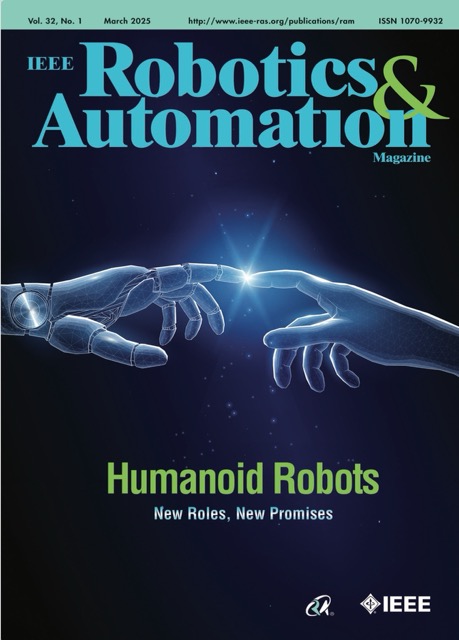
Scope & Vision
The issue explores how humanoid robots can blend cognitive and physical capabilities to serve in human‑centered environments. It highlights the ongoing challenge of matching human‑level mobility, shape, and intelligence in robots—a goal that has long captured researchers and industry alike.
Industry Momentum
- Recent announcements—Tesla’s “Tesla Bot” and China’s white paper on humanoid policy—have sparked a wave of new, highly capable humanoid platforms.
- Major corporations such as Amazon, BMW, and Tesla are already running field tests, indicating a rapid transition from research to real‑world deployment.
Hardware Spotlight: COMAN+
The Special Issue features the COMAN+ robot, developed by the Human‑Robot Interaction line at the Istituto Italiano di Tecnologia. COMAN+ showcases advanced joint actuation and compliant control that push the limits of human‑like movement, yet still illustrates that many physical benchmarks remain out of reach.
Research Highlights
- Integration of perception, planning, and control to achieve robust autonomy in unstructured settings.
- Human‑robot collaboration for logistics, emergency response, and marine exploration—areas identified by the authors as key application domains.
- Detailed descriptions of COMAN+ hardware and software stack that provide a reproducible platform for future research.
Future Outlook
While hardware challenges persist, the issue underscores the complementary nature of cognitive and physical advances. Continued collaboration between academia and industry will be crucial to bring fully autonomous, humanoid robots into everyday use.
Loco-Manipulation Workshop – ICRA 2024
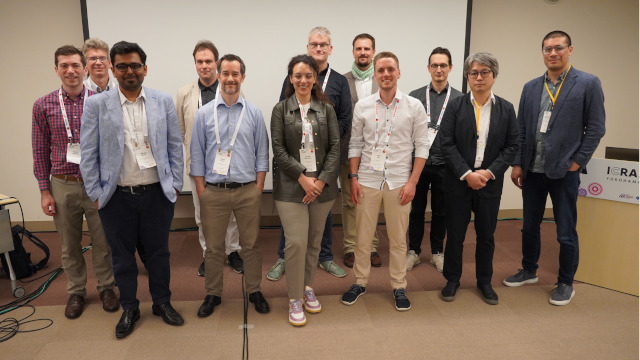
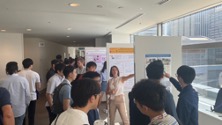
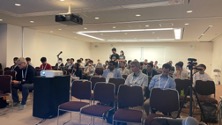
Event date: Friday, 17 May 2024 (09:00 – 17:00 CEST)
Venue: Conference Center Rooms 414‑415, Yokohama.
About the Workshop
The full‑day Loco‑Manipulation workshop brought together world‑class experts to explore the synergies between locomotion and manipulation in robotics. Participants discussed algorithmic breakthroughs, hardware advances, and real‑world applications ranging from planetary exploration to domestic service robots.
Invited Keynote Speakers
- Pulkit Agrawal – MIT
- Alin Albu‑Schäffer – TU Munich
- Georgia Chalvatzaki – TU Darmstadt
- Sören Kerner – Fraunhofer IML
- Victor Klemm – ETH Zürich
- Kei Okada – University of Tokyo
- Michael Posa – Univ. of Pennsylvania
- Marc Toussaint – TU Berlin
Organising Committee
- Oliver Urbann – Fraunhofer IML
- Julian Eßer – Fraunhofer IML
- Ioannis Havoitis – University of Oxford
- Shivesh Kumar – Chalmers, DFKI
- Gabriel Margolis – MIT
- Carlos Mastalli – Heriot‑Watt University
- Claudio Semini – IIT
- Olivier Stasse – LAAS‑CNRS
Thank you to everyone who attended, presented, and supported this milestone event. The workshop materials, including recordings and slides, are available on the website.
Associate Editor of IEEE Robotics & Automation Magazine
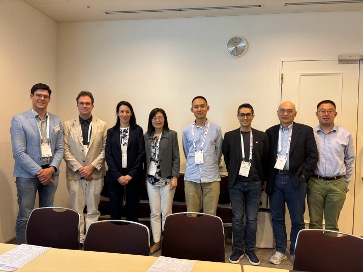
I’m thrilled to share that, as of November 2023, I’ve joined the IEEE Robotics & Automation Magazine team as an Associate Editor. I’m deeply grateful to the editorial board and to the many colleagues who have mentored me along the way for this opportunity. In this role I look forward to working with the magazine’s outstanding editorial team to support the publication of high‑impact research across robotics and automation. It’s an exciting chance to help shape the conversation in our field and to bring fresh perspectives to readers worldwide. Thank you to IEEE for the confidence you’ve placed in me—I can’t wait to get started!
Publications
